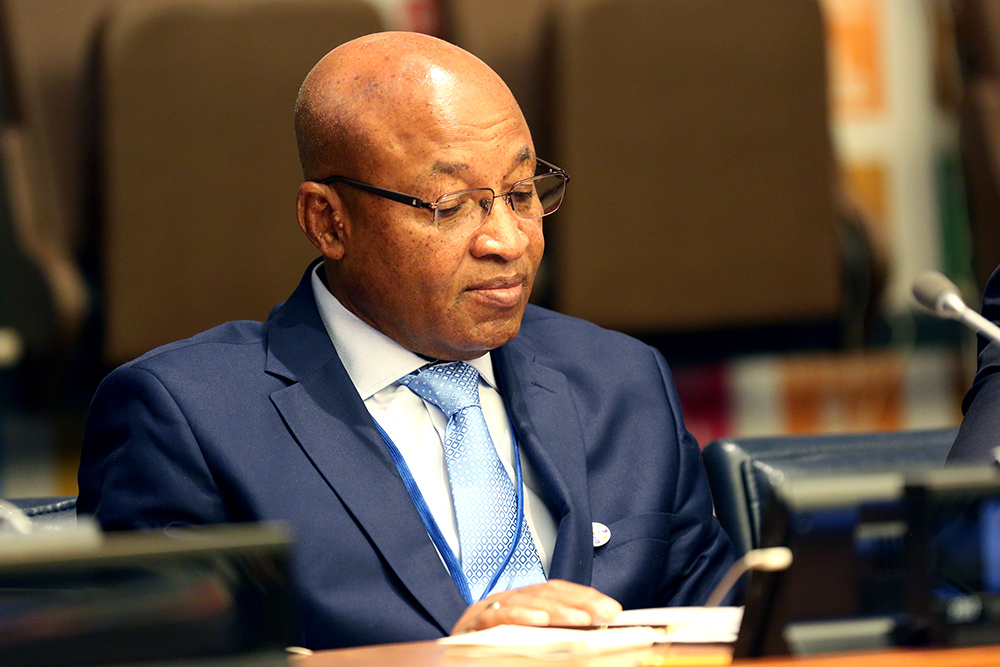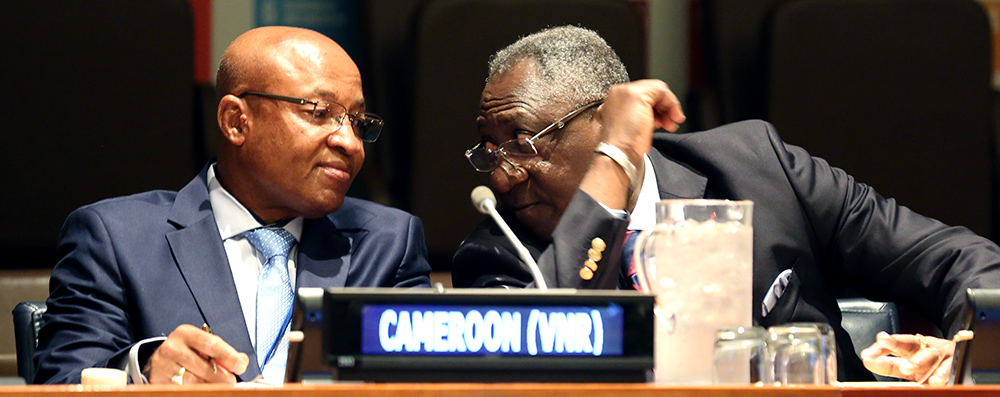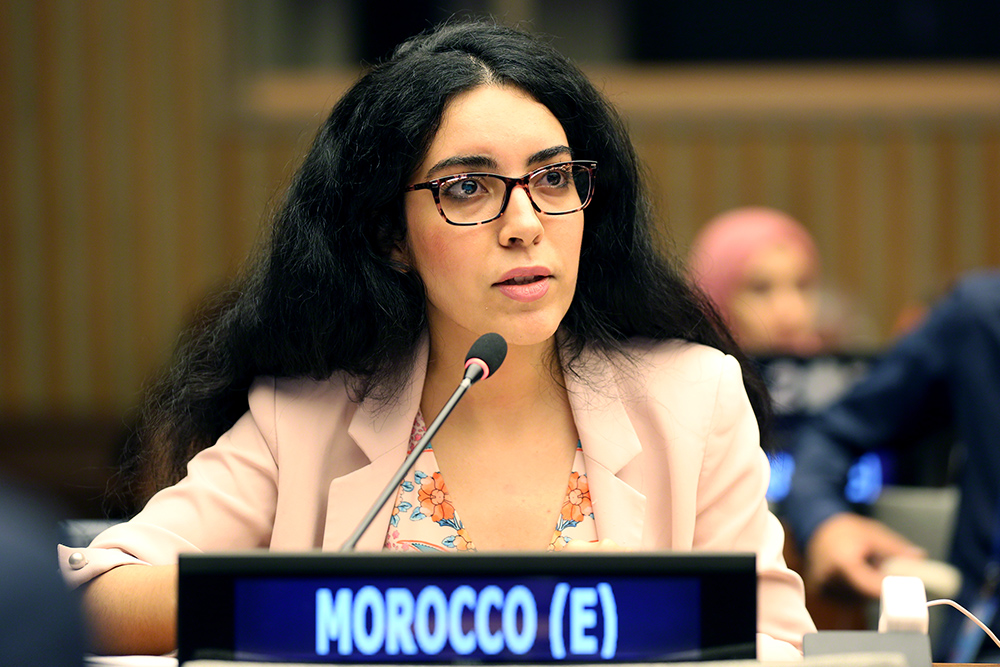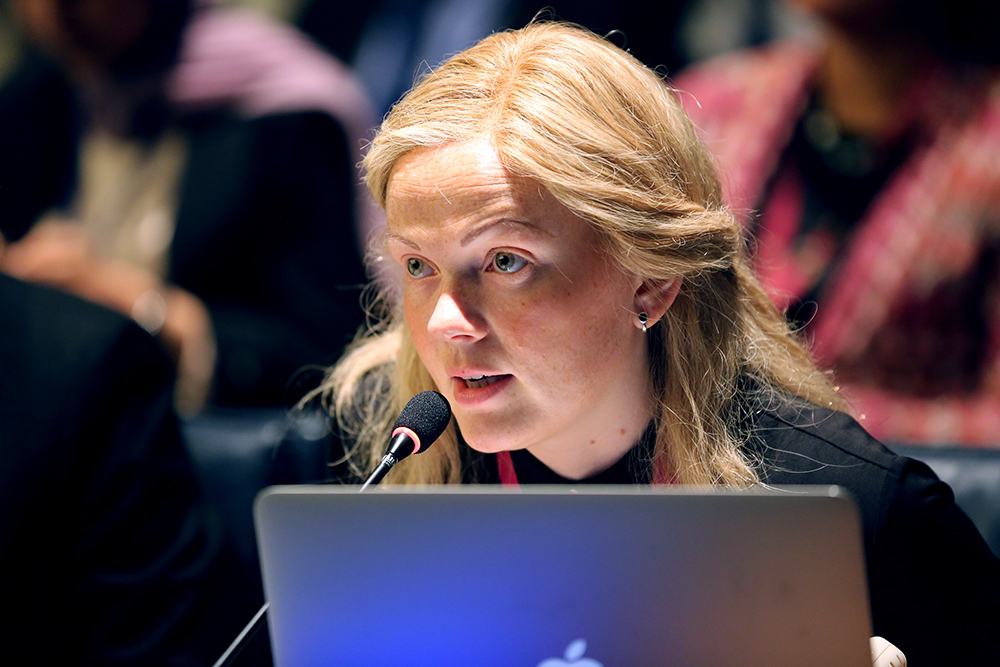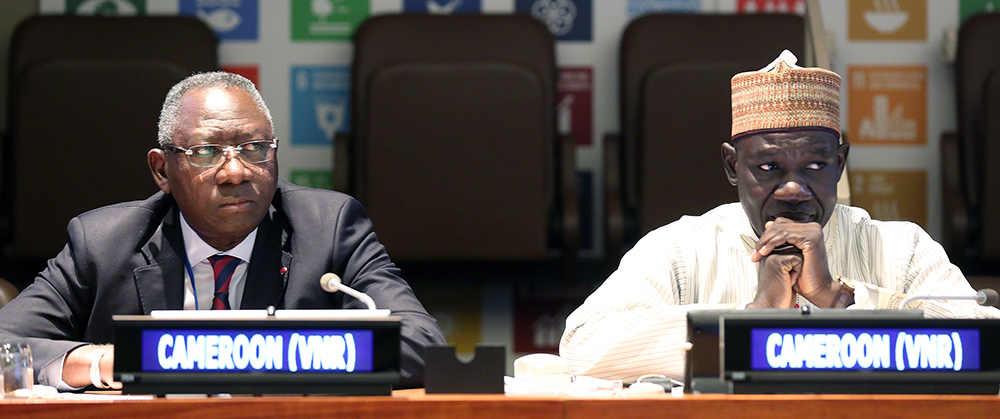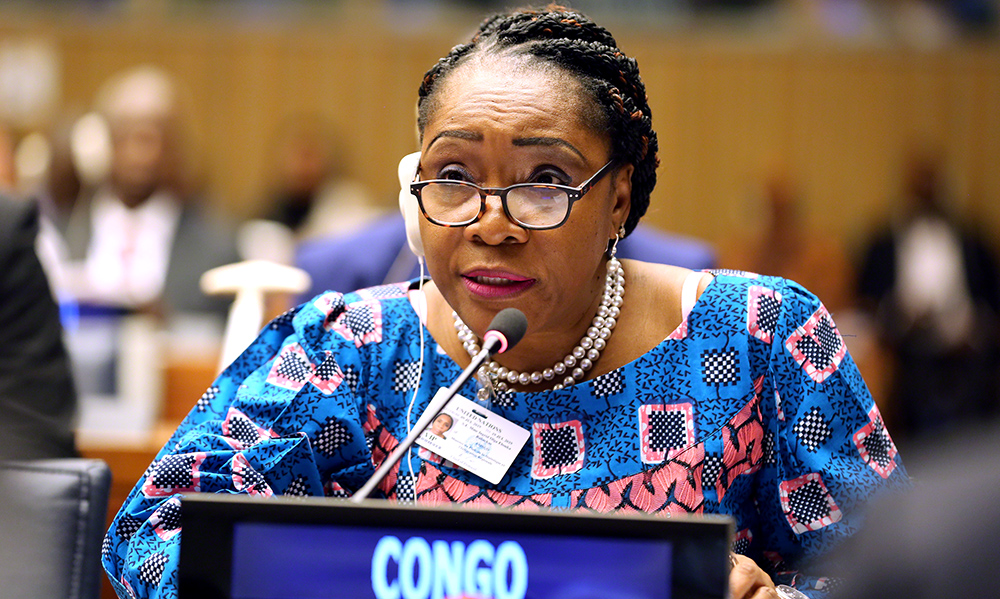Events Covered on Thursday, 18 July 2019
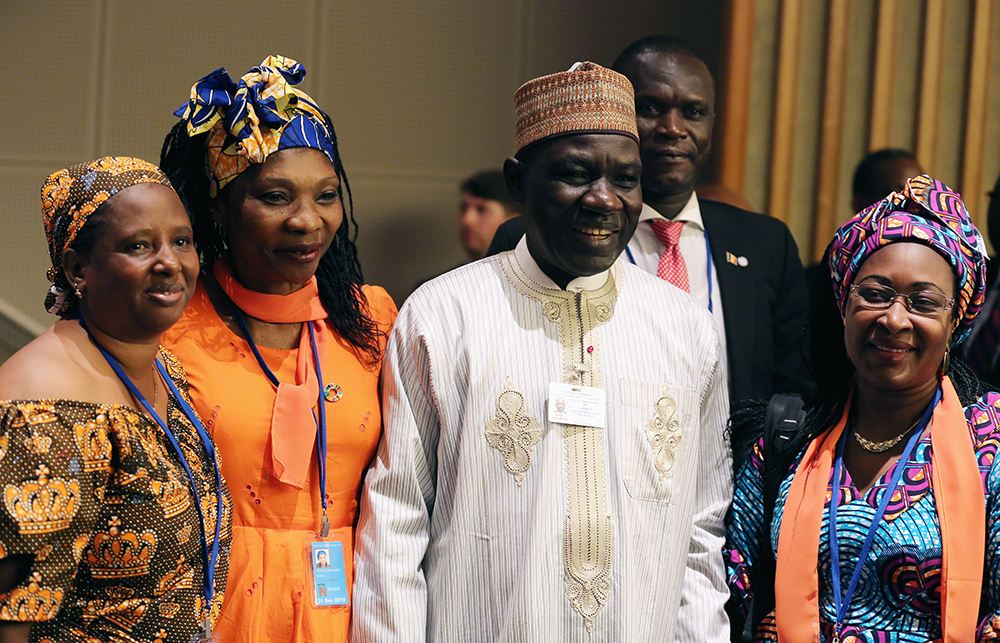
 The following event was covered by IISD Reporting Services on Thursday, 18 July 2019:
The following event was covered by IISD Reporting Services on Thursday, 18 July 2019:
Photos by IISD/ENB | Mike Muzurakis
For photo reprint permissions, please follow instructions at our Attribution Regulations for Meeting Photo Usage Page
Cameroon Voluntary National Review: Key Highlights from the UN High-level Political Forum 2019
Presented by Cameroon
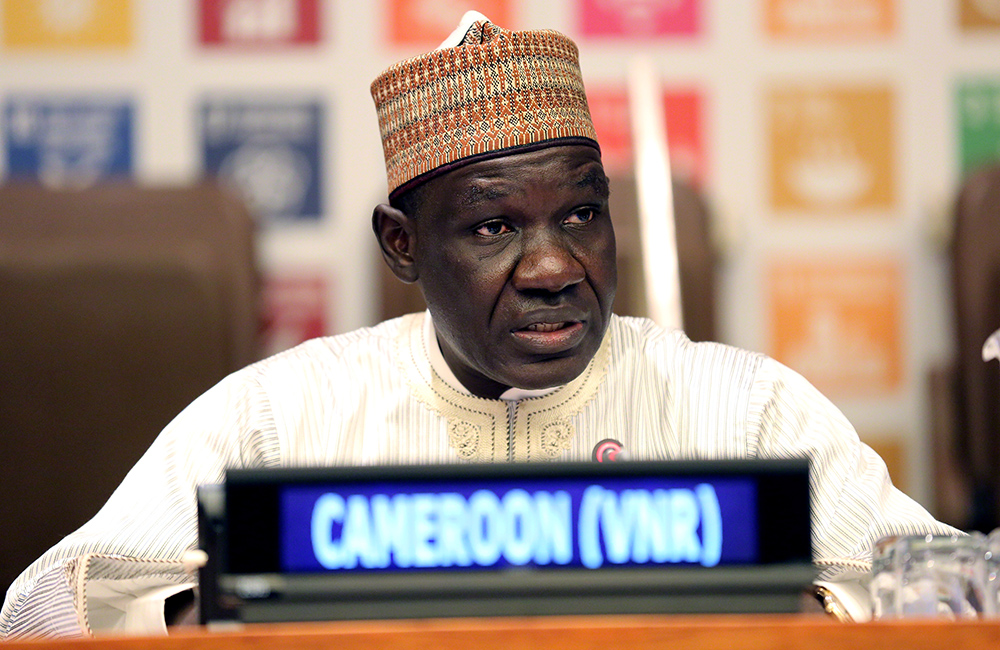
Key areas of paramount interest for the Government of Cameroon in the upcoming years:
- Intensification of national ownership of the Sustainable Development Goals (SDGs);
- Acceleration of full integration of SDGs into daily public policies and programs;
- Establishment of a national multi-stakeholder monitoring framework (as a review and accountability platform for the implementation of SDGs);
- Strengthening of national statistical system, for example, with the support from the World Bank; and
- Elaboration of strategies aimed at enlarging partnerships and mobilizing financial resources needed for a successful implementation of the SDGs.
Event Summary:
Alamine Ousmane Mey, Minister of Economy, Planning and Regional Development of Cameroon, presented the first Voluntary National Review (VNR) of Cameroon at the UN High-level Political Forum 2019 (HLPF 2019). In his presentation, he shared that Cameroon: has a population of 25.6 million, of which 60% is constituted of young people under 25 years old; is located at the heart of the Gulf of Guinea: and has stable institutions, as well as diversified and resilient economy supported by great infrastructure. He explained that the methodology adopted for the realization of the VNR was built on normative, participatory and inclusive approaches, with the aim of leaving no one behind. He noted that the VNR focused on the SDGs related to SDGs 4, 8, 10, 13, 16, and 17, the goals under review at the HLPF 2019.
In the area of education (SDG 4), he explained that there was an increase in student enrolment and significant progress has been made regarding access, expansion, and reduction of disparities. In relation to fundamental education, he highlighted that the completion rates of students at first cycle of the secondary level has improved from 53.2% in 2015 to 80% in 2018. However, he acknowledged deterioration in: the completion rate at the primary level, due to security crisis and humanitarian challenges, as well as in the pupil-teacher ratio, as a consequence of an increase in the school enrollment.
On the issue of decent work and economic growth (SDG 8), Mey emphasized that the country registered a stable economic growth, over the period 2016-2018, with an average economic growth of 4% per annum. He said the government is working to achieve the 7% economic growth rate required to meet the SDGs.
He underscored that reducing inequalities (SDG 10) remains a major challenge for Cameroon, noting again the negative impact of security instability.
Mey announced efforts to enhance social safety nets, which are expected to ensure broaden protection for all by ameliorating the living conditions of the most poor and vulnerable populations. He also underlined policies that increase the number of beneficiaries and progressively raise guaranteed minimum wages.
For climate action (SDG 13), he underscored that his country has ratified the Paris Agreement, developed a National Adaptation Plan and created an inter-ministerial committee to follow-up the implementation of the Paris Agreement recommendations. He drew attention to the challenge of mobilizing resources for the fund to implement the National Adaptation Plan and to finance alternative activities to deforestation, the main sector responsible for greenhouse gas emissions.
On SDG 16 (peace, justice and strong institutions) he highlighted that, despite increased fragility and instability in conflict areas, there was improvement in the quality of institutions, but noted more effort is required to reinforce trust and confidence in national institutions for greater efficiency, inclusion, and justice.
On challenges related to the SDG 17 (Partnerships), Mey emphasized: ensuring large-scale mobilization of multiple stakeholders; identifying and exploiting new revenue sources; promoting a fair and inclusive digital economy and improving the competitiveness of the economy.
During a video presentation, Cameroon showcased actions on the promotion of decent jobs, climate action, and peace to achieve social reconciliation. The video also noted efforts on disarmament.
Following the video presentation, Mey emphasized the way forward to leave no one behind, highlighting the need to ensure: the strengthening of statistics for better monitoring, and the increase of financial resources to achieve the SDGs.
On the way forward, Cameroon underlined the importance of intensifying national ownership to accelerate the integration of SDGs into daily lives, as well as the elaboration of strategies aimed at enlarging partnerships.
On a question from Norway, Mey praised the bilateral cooperation between the two countries, agreeing that security tensions disrupt education efforts. To overcome these barriers, he emphasized actions focusing, in particular, on primary education.
On a question from Mexico regarding expectations on the UN reform and on the role of the UN country coordinators, he emphasized the SDG 17, noting partnerships as one of the strongest pillars of the Agenda 2030.
The UN Resident Coordinator in Cameroon inquired about innovative financing. Mey replied suggesting the transfer of competences to local authorities and scaling up finance management to promote local resilience and poverty reduction.
During the debate, other countries and Major Groups lauded the holistic framework of Cameroon’s VNR; expressed concern with population displacement and the education of refugees, as well as called for further attention to women’s education, notably in rural areas.


